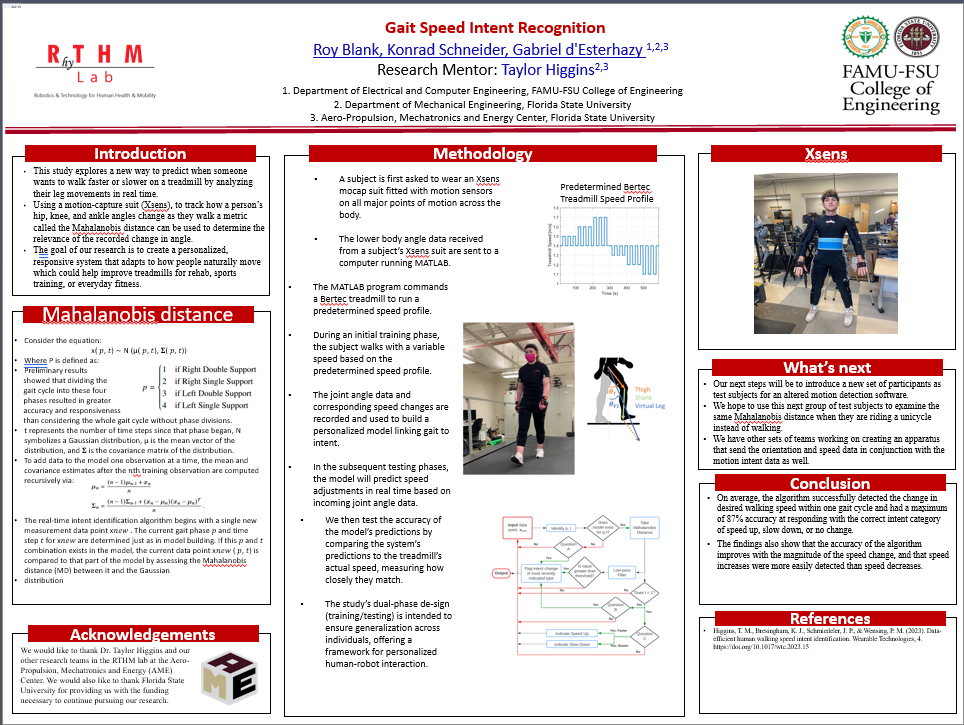Research Symposium
25th annual Undergraduate Research Symposium, April 1, 2025
Gabriel d'Esterhazy Poster Session 2: 10:45 am - 11:45 am/ Poster #150

BIO
My name is Gabriel d'Esterhazy and I am a Sophomore computer engineer. I am looking to hopefully work in the field of advanced neural prosthetics and other assistive devices that interpret and act upon biometric data.
Gait Speed Intent Recognition
Authors: Gabriel d'Esterhazy, Dr. Taylor HigginsStudent Major: Computer Engineering
Mentor: Dr. Taylor Higgins
Mentor's Department: Mechanical Engineering Mentor's College: Florida State University Co-Presenters: Konrad Schneider, Roy Blank
Abstract
This study explores a new way to predict when someone wants to walk
faster or slower on a treadmill by analyzing their leg movements in real
time. Using a motion-capture suit (Xsens), to track how a person’s hip,
knee, and ankle angles change as they walk a metric called the Maha-
lanobis distance can be used to determine the relevance of the recorded
change in angle. These angles are sent to a computer running MATLAB,
which commands a Bertec treadmill to run a predetermined speed profile.
During an initial training phase, the subject walks under a variable speed
protocol, with joint angle data and corresponding speed changes recorded
to build a personalized model linking gait to intent. In the subsequent
testing phase, the model predicts speed adjustments in real time based
on incoming joint angle data. We test accuracy by comparing the sys-
tem’s predictions to the treadmill’s actual speed, measuring how closely
they match. The goal is to create a personalized, responsive system that
adapts to how people naturally move, which could help improve treadmills
for rehab, sports training, or everyday fitness. The study’s dual-phase de-
sign (training/testing) ensures generalization across individuals, offering
a framework for personalized human-robot interaction.
Keywords: Gait speed, intent, treadmill

